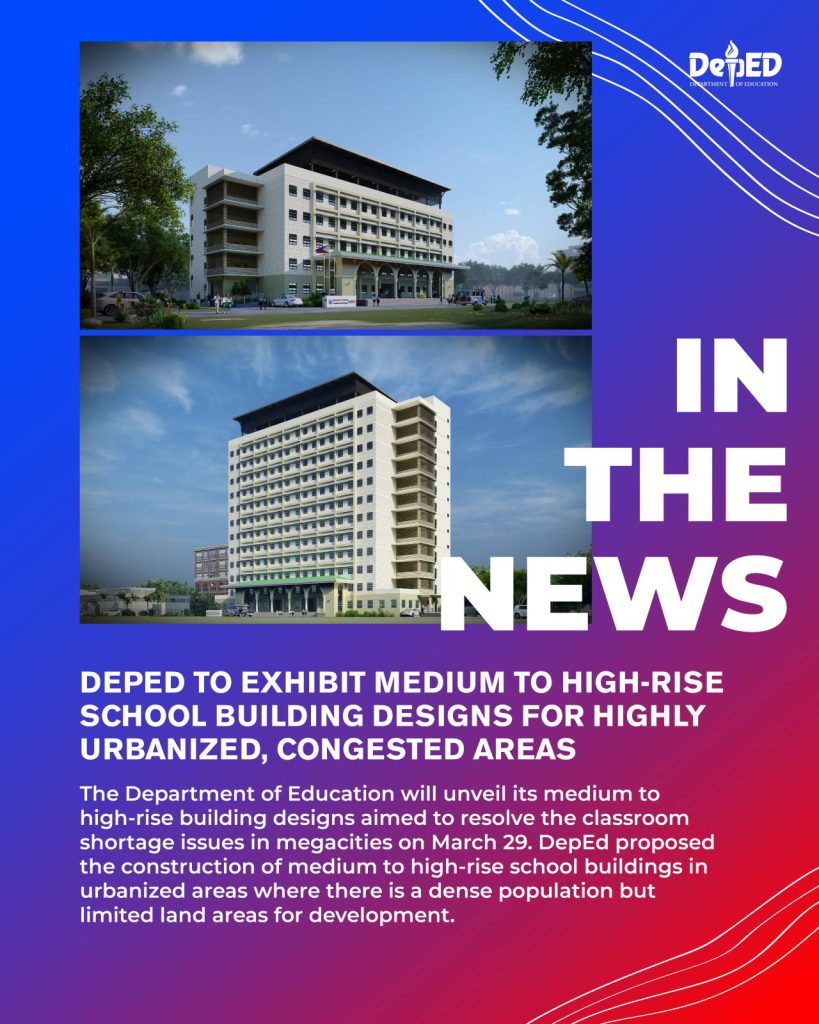 |
PASIG CITY, March 23, 2022 – The Department of Education (DepEd) will unveil its medium to high-rise building designs aimed to resolve the classroom shortage issues in megacities on March 29 at the Rizal I Lobby, DepEd Central Office.
The exhibit will showcase the salient designs of the medium to high-rise buildings to be constructed in highly urbanized and congested areas in the country.
“The Department is continuously upgrading public school buildings to conform with the changing environment and to solve the problem of classroom shortage in areas where the number of learners is constantly growing. These school buildings will help our teachers, learners, and parents have their conducive spaces for learning and collaboration,” Undersecretary for Administration Alain Del B. Pascua said.
Given the limited sites available for schools to acquire and build on, the Department proposed the construction of medium to high-rise school buildings in urbanized areas where there is a dense population but limited land areas for development.
School building designs may range from at least five- to 12-story, depending on the required classroom needs of the school, the building space, the type of soil, and the projected enrollment population of the school for the next 15 to 25 years.
The Department based the plans and designs on the latest construction technologies, the department’s Minimum Performance and Specifications (MPSS), and the National Building Code (NBC).
As per the latest classroom inventory and enrollment data, DepEd identified 167,901 classrooms that need to be built in all public elementary and secondary schools with remaining classroom requirements.
Undersecretary Pascua encouraged the local government units, private sector, and other basic education stakeholders to partner with the national government in the construction of school buildings.
“We urge our partners, stakeholders, and local government units to take part in our plans of solving the classroom shortage in the country. This will help our learners to have a conducive learning environment, and it will advance the basic education in the country,” Usec. Pascua said.
END

